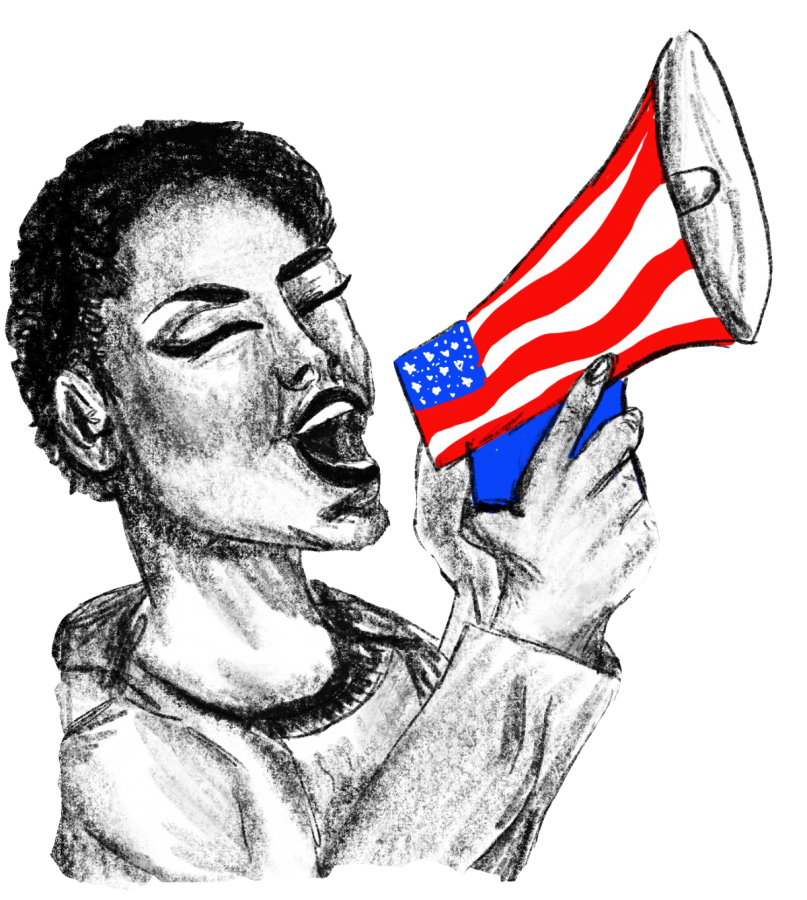Young Voices in Politics
Over the past decade, many have noticed the rise of younger generations’ voices in politics. In the past, the United States government has failed to unify the youth, leaving them with seemingly no place to express their thoughts and beliefs. Now, with the growing political polarization, many young people are beginning to find their own voices in politics.
In the 2020 presidential election, the youth vote turnout was at an all-time high. According to Tufts University’s Center for Information and Research on Civic Learning & Engagement (CIRCLE), youth voter turnout went up by at least five percent from 2016. Increasing the voter turnout for any group of people can have a drastic effect on the election results. It has also been proven that voting at a younger age can have many benefits, including a personal sense of power, improvement of social well-being, increased responsibility, and better leadership skills. The youth vote can not only have a direct impact on local and national elections but can also increase the feeling of social responsibility and opportunity to further political education at a young age.
Why did this election, in particular, show increased youth voter turnout? Young people showed up at the polls this year in response to pressing, key social issues such as climate change, the pandemic, and racism. Throughout the last four years, many young people have been educating themselves on political topics in hopes of understanding more of what is happening in the country.
Junior Emily Paladino explained her thoughts on why she thinks the youth voter turnout was so high: “There are two causes: education and social media. We, as a group, are incredibly socially and politically aware because so many of us have taken the time to educate ourselves and form our own opinions. Social media is also a huge influence in politics. You can see on Instagram just how many people have strong political opinions that can influence a lot of people. Social media can be used as a political marketing tool, and it would be incredibly effective.”
To Paladino’s point, social media has been proven to change the face of politics. Research shows that the media can have a “significant influence on voter behavior.” This may be because social media improves outreach and mobilization for political marketing. However, it has had extreme negative effects, too, such as increased political polarization, the spread of misinformation, and harassment for political beliefs.
The young vote in this year’s national election turned out with a majority for President-elect Joe Biden. Young voters essentially carried Biden to victory, with him gaining an astonishing 62% of their vote. His focus on certain issues, like climate change, helped push his victory further. In many electoral colleges, the youth vote made a big difference for Democrats, pushing wins in many previously Republican states.
Many young influencers and celebrities have been increasing their political expression throughout their platforms, as well. Junior Isabella Sferrazza commented, “It’s crazy to see how many people have gotten involved with politics in the media. I love seeing my favorite influencers and celebrities really fight for what they believe in. It makes all of us normal high schoolers feel important to this country.”
AP U.S. History Teacher Stephen LoCicero said, “I think everyone should vote. We are given this empowering freedom in our democracy to have a say in what happens in our country. It was amazing to see so many young people empowered to vote in this election.”
It is evident that younger generations have a great influence on issues that affect the entire country. And, with recent political polarization, it is more crucial than ever that society promotes the importance of young voices in politics. Together, the young can change the world for the best.

I am a part of the Class of 2022. I am a news online editor and a managing print editor for the features section of Horizon. I am an avid reader and writer.

















